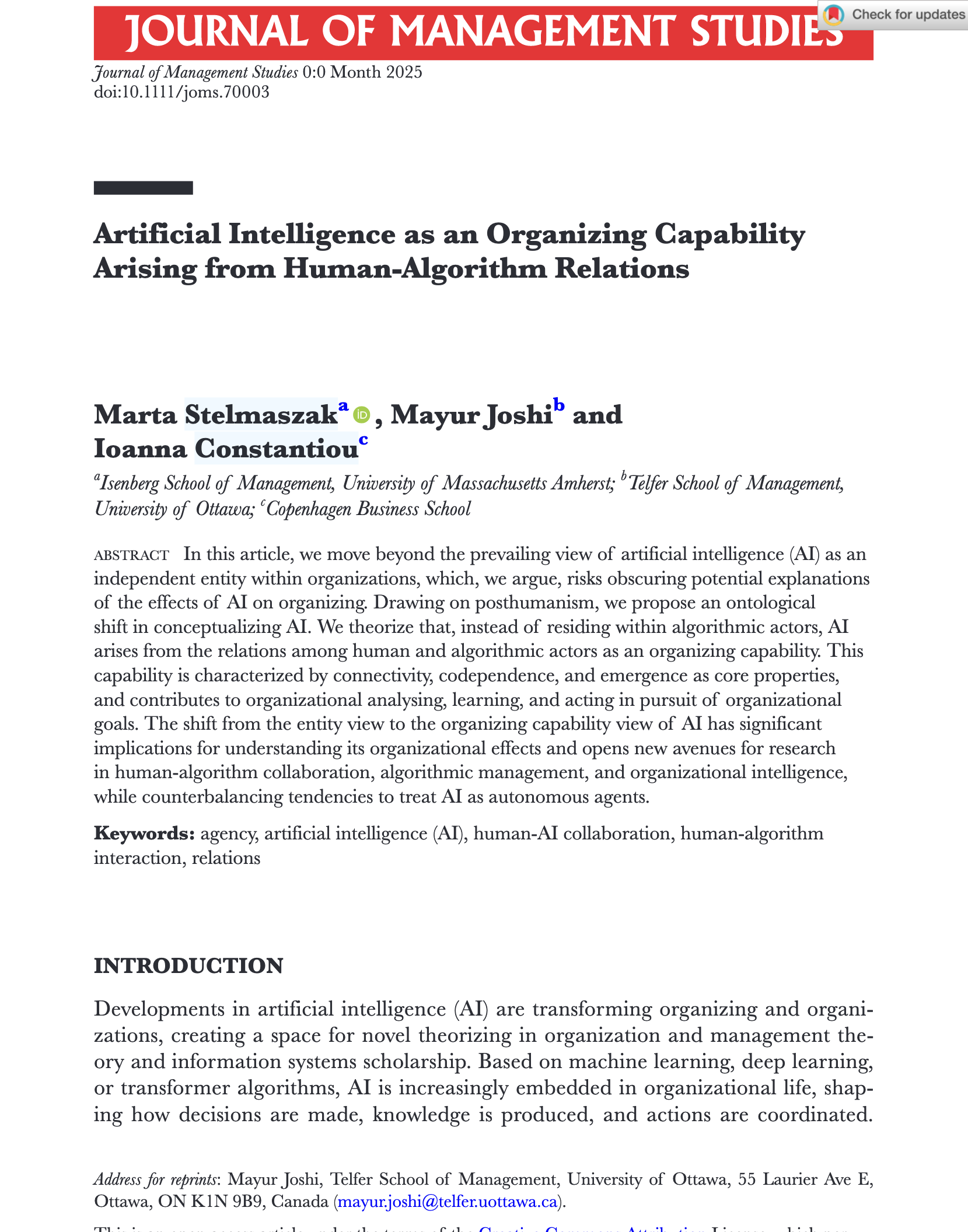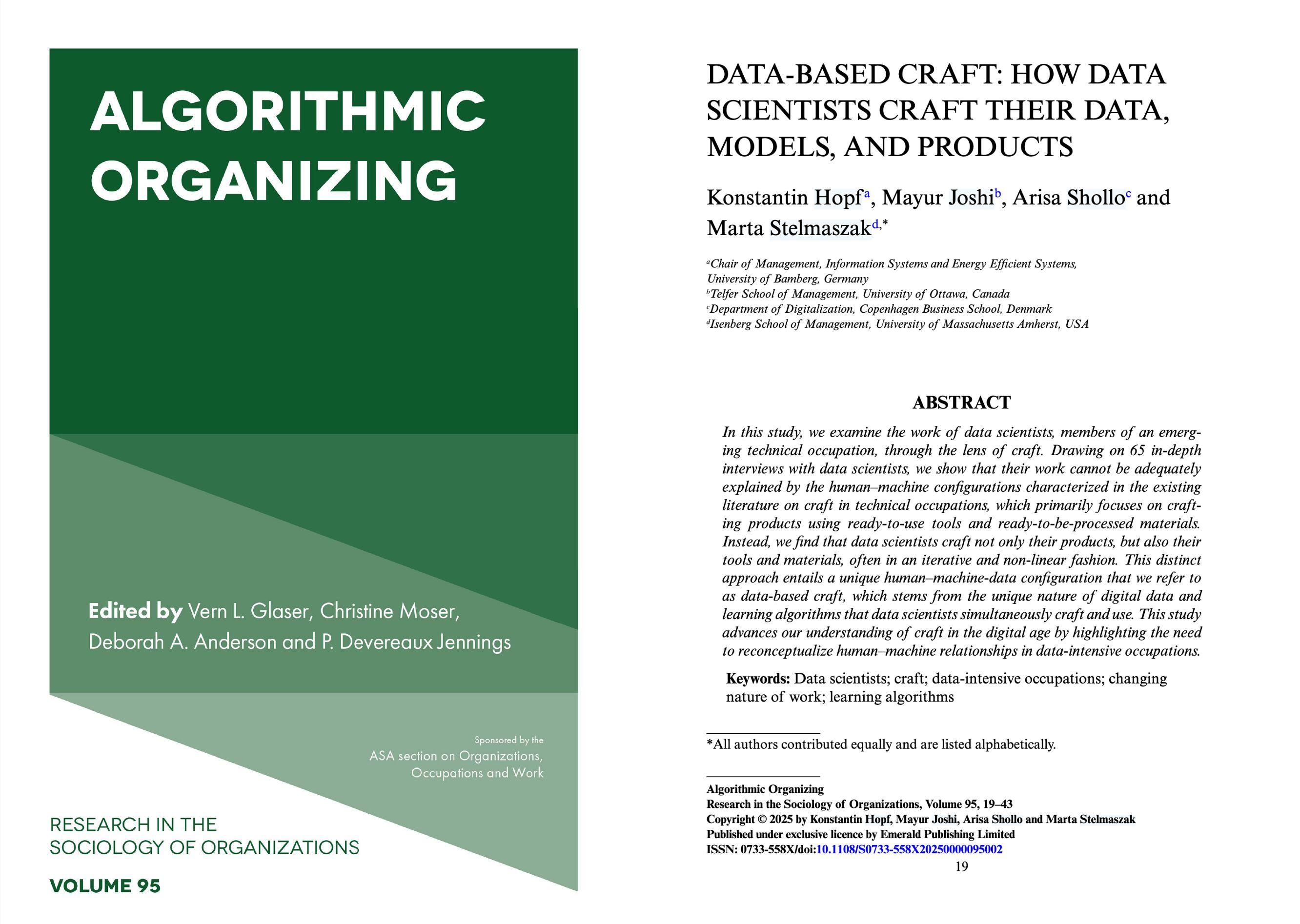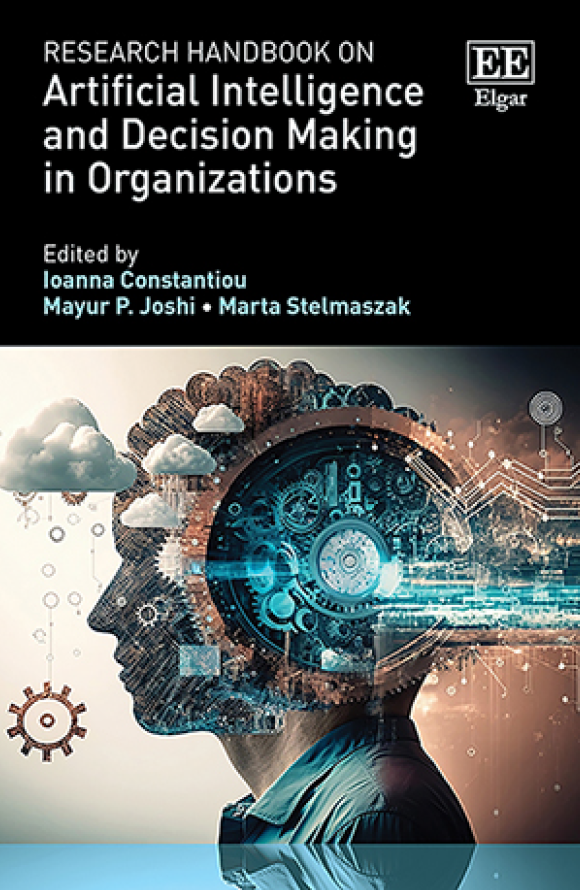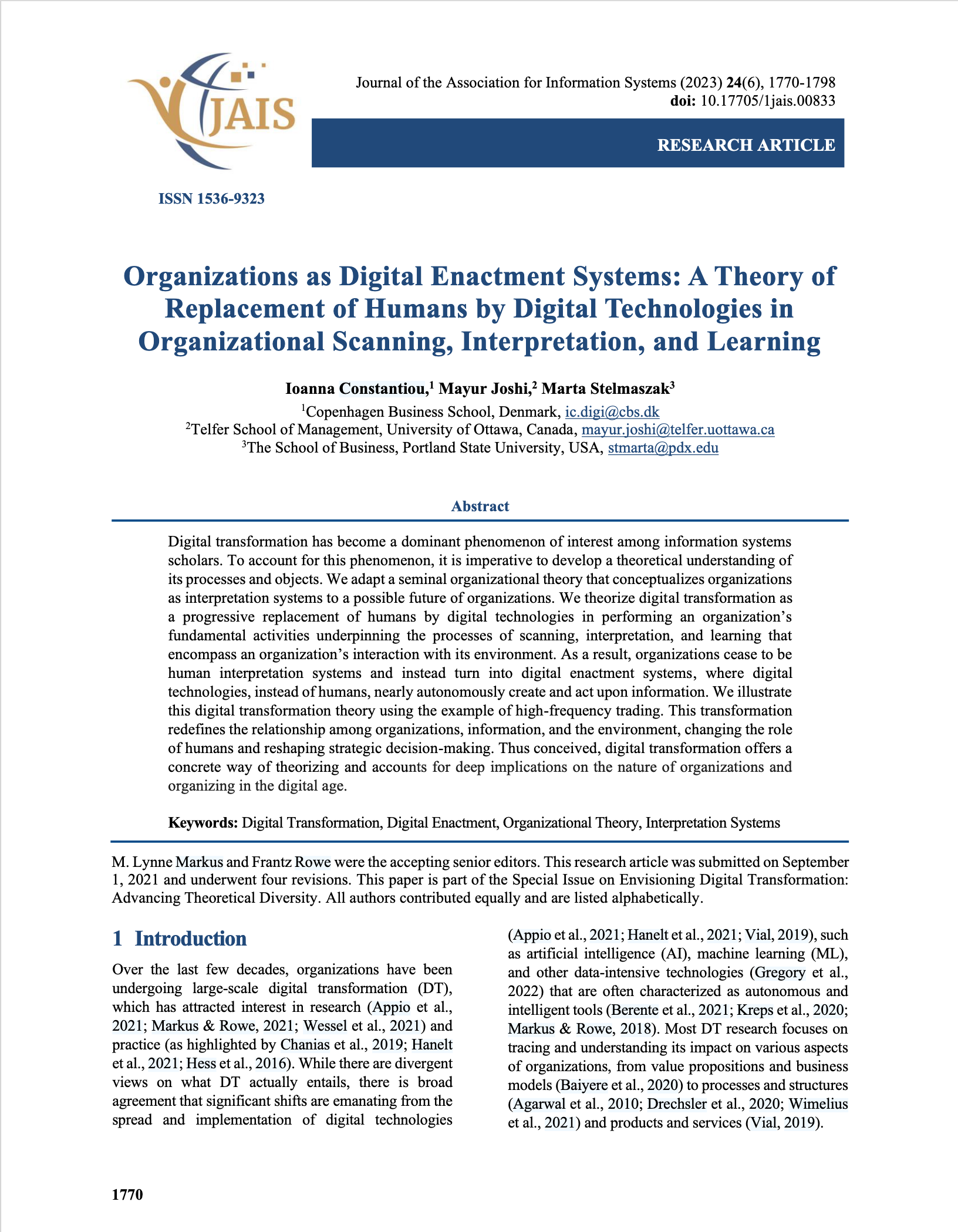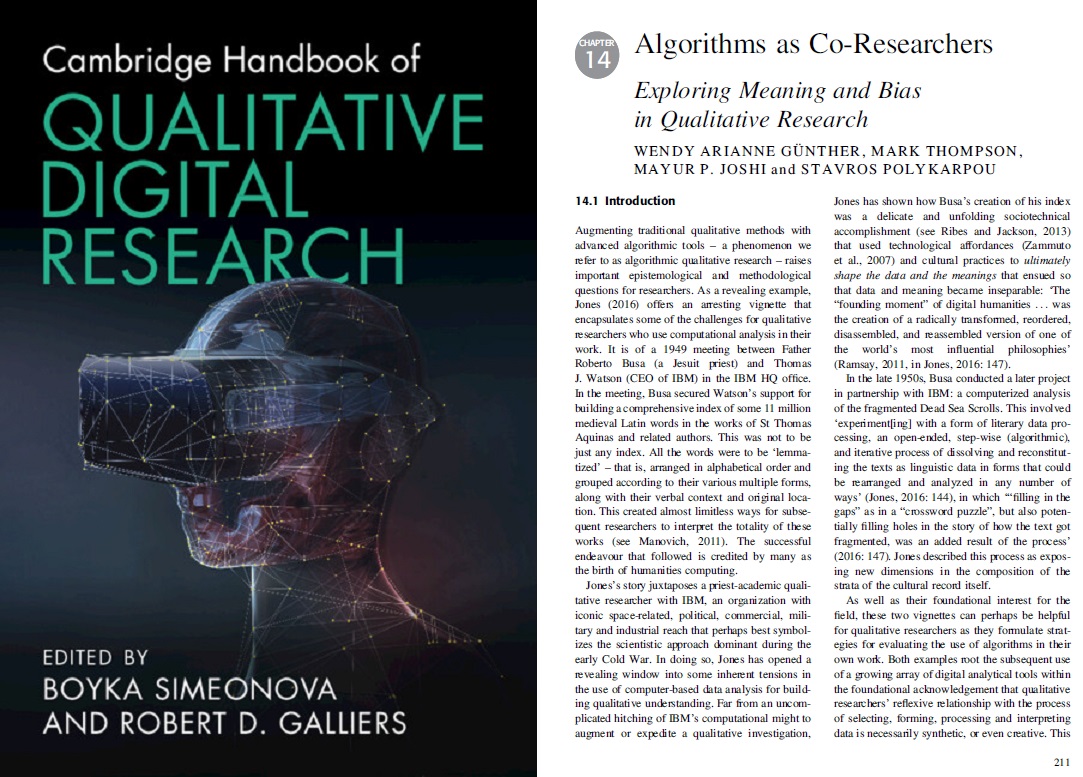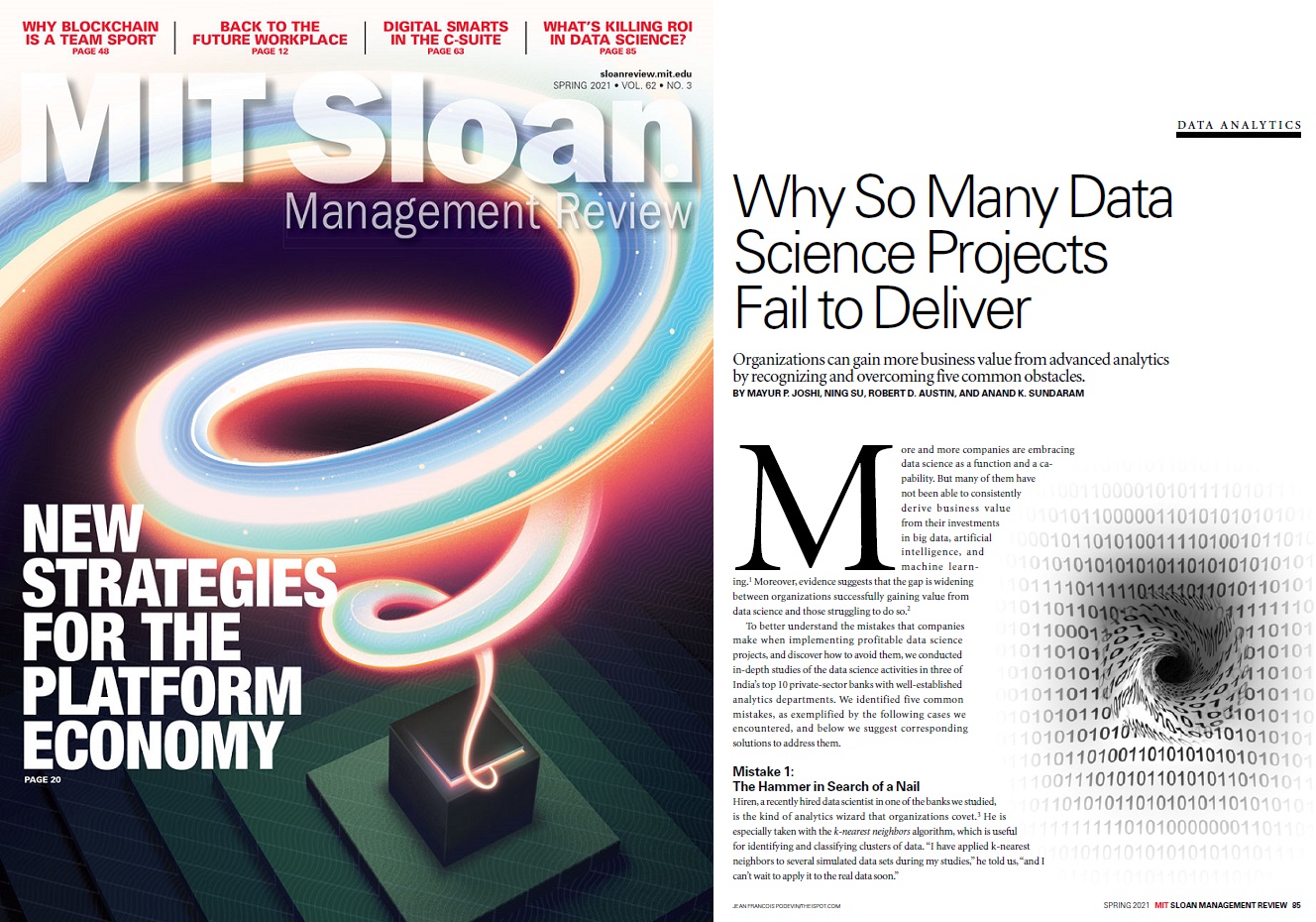Rethinking Artificial Intelligence: From an Entity to an Organizing Capability
The current predominant narrative depicts artificial intelligence (AI) as an entity that resides in algorithms. In business practice as well as in academic discourses, we often talk about deploying, installing, or integrating AI into our existing systems, treating AI as an entity. In our new article, recently published in the Journal of Management Studies, we challenge this dominant view and argue that AI is an organizing capability that arises only when humans and algorithms work together in practice. This new definition changes how we think about AI in organizations, policymaking, and society: AI is not a tool we adopt, but a capability we collectively create. In this blog, we outline the implications of the capability view for managing AI.

